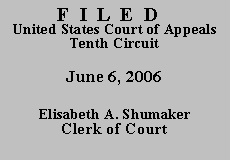

|
UNITED STATES OF AMERICA, |
|
Before MURPHY, SEYMOUR and McCONNELL, Circuit Judges.
Defendant, Edwin Alcerro-Gamaldo was charged in a one-count indictment with illegal reentry after deportation subsequent to an aggravated felony, in violation of 8 U.S.C. 1326(a) and (b)(2). Pursuant to a plea agreement entered into between Alcerro and the government, Alcerro pleaded guilty to the charge contained in the indictment. He was sentenced to fifty-seven months' imprisonment, followed by three years' supervised release. Alcerro filed a timely Notice of Appeal, and his counsel filed a brief pursuant to Anders v. California, 386 U.S. 738 (1967), moving to withdraw. For the reasons set forth below, we agree with counsel that the record in this case provides no nonfrivolous basis for an appeal, and we therefore grant counsel's motion to withdraw and dismiss this appeal.
Alcerro is an alien and citizen of Honduras. On September 7, 1999, he was convicted in the Circuit Court of Multnomah County, Oregon of possession of a controlled substance. He was deported on June 3, 2003. On July 27, 2004, Alcerro was arrested by the Denver Police Department and later pleaded guilty to possession with intent to distribute a controlled substance. After completing his term of incarceration on the Denver conviction, Alcerro was charged in federal district court with unlawful reentry of a deported alien subsequent to an aggravated felony conviction, in violation of 8 U.S.C. §§ 1326(a) and (b)(2). Alcerro did not dispute that the 1999 Oregon conviction constitutes an aggravated felony. Accordingly, he pleaded guilty to the federal charge. The district court accepted Alcerro's plea after informing him of the constitutional rights he would thereby waive and establishing the factual basis for the plea. The United States Probation Office then prepared a presentence report ("PSR") which calculated Alcerro's criminal history as Category V. At sentencing, the district court departed to criminal history Category IV, finding the points added to Alcerro's criminal history because of the temporal proximity of the instant offense and the Denver conviction did not accurately reflect the facts surrounding the instant offense. The district court found Alcerro's offense level to be twenty-one, resulting in a Guidelines range of fifty-seven to seventy-one months. After analyzing the factors set forth in 18 U.S.C. § 3553(a), the court sentenced Alcerro to fifty-seven months' incarceration, the low end of the Guidelines range. Alcerro then filed this timely appeal.
Alcerro's counsel has filed a brief pursuant to Anders v. California, 386 U.S. 738 (1967), advising this court that Alcerro's appeal is wholly frivolous. Accordingly, counsel has also filed a motion to withdraw. Under Anders, counsel may "request permission to withdraw where counsel conscientiously examines a case and determines that any appeal would be wholly frivolous." United States v. Calderon, 428 F.3d 928, 930 (10th Cir. 2005). Counsel is required to submit a brief to the defendant and the appellate court indicating any potential appealable issues. Id. The defendant may then submit additional arguments to the court. "The [c]ourt must then conduct a full examination of the record to determine whether defendant's claims are wholly frivolous. Id. If the court concludes after such an examination that the appeal is frivolous, it may grant counsel's motion to withdraw and may dismiss the appeal." Id. Alcerro's counsel filed her Anders brief on August 11, 2005. Alcerro has been given notice of the Anders brief and counsel's motion to withdraw. Alcerro has failed to respond to this notice. Our conclusions, therefore, are based on counsel's Anders brief and our own review of the record.
In her Anders brief, Alcerro's counsel states there is no basis for challenging Alcerro's guilty plea. A guilty plea may be set aside on direct appeal if the court holds it was not knowing and voluntary. See United States v. Asch, 207 F.3d 1238, 1242 (10th Cir. 2000). The district court addressed Alcerro during the change of plea hearing and meticulously questioned him about his plea and his understanding of its consequences. Having carefully reviewed the record, we agree there is no basis for a claim that Alcerro's plea was not entered knowingly and voluntarily.
As recognized by counsel, the only other possible basis for an appeal must relate to Alcerro's sentence. When it pronounced Alcerro's sentence, the district court fully complied with United States v. Booker and carefully considered the sentencing factors contained in 18 U.S.C. § 3553(a) and the applicable Guidelines range. 543 U.S. 220 (2005). We agree with counsel that there is no nonfrivolous basis upon which Alcerro could challenge his sentence.
Our review of the record reveals no other claims arguable on their merits, and we conclude that Alcerro's appeal is wholly frivolous. Accordingly, counsel's motion to withdraw is granted and this appeal is dismissed.
ENTERED FOR THE COURT
Michael R. Murphy
Circuit Judge
*. This order and judgment is not binding precedent, except under the doctrines of law of the case, res judicata and collateral estoppel. The court generally disfavors the citation of orders and judgments; nevertheless, an order and judgment may be cited under the terms and conditions of 10th Cir. R. 36.3.